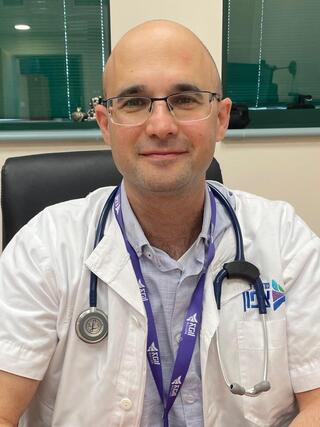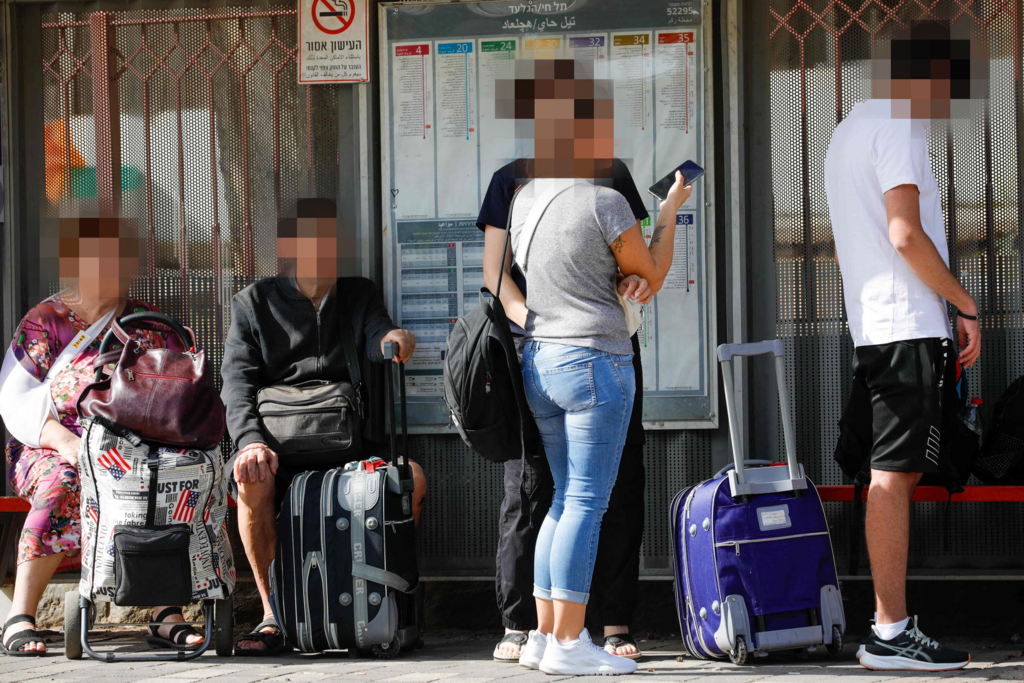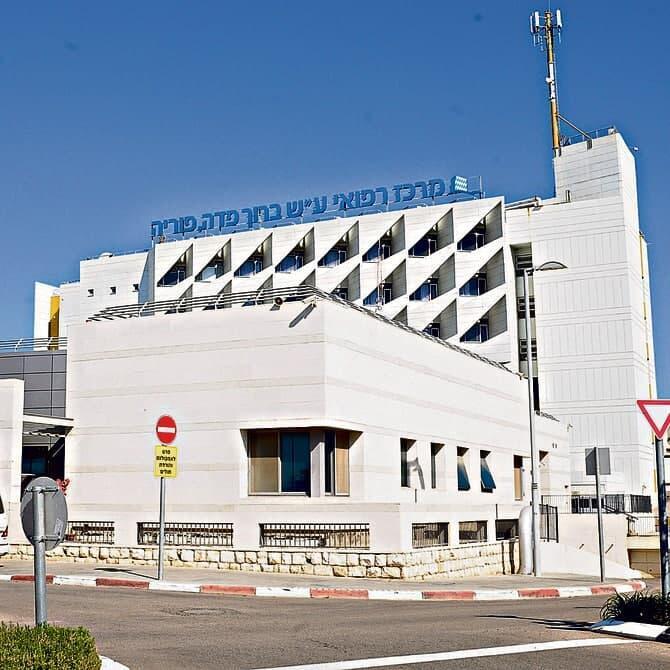Getting your Trinity Audio player ready...
With the outbreak of war, tens of thousands of Israeli residents were evacuated from the northern border to the Tiberias region. Most of them were accommodated in hotels and over time some chose to leave to other living arrangements. However, the older population has mostly remained in the hotels and have been requiring medical attention for their ailments in the local hospital. The percentage of evacuees admitted to the hospital is particularly high compared to their percentage in the region's population.
One of the reasons for the high percentage of hospitalizations among the older displaced residents is the breakdown of communal medical services. Once the local clinic in the north shuts down or it's too far to drive there regularly, the older patients must find a new arrangement. The patients are not under regular medical supervision, and as a result are hospitalized for chronic underlying diseases, such as worsening heart failure, diabetes complications and cerebrovascular events.
For example, a diabetic patient who was evacuated from the Western Galilee was hospitalized because he had an infection in his leg that was not properly treated due to personal neglect. This would not have happened if he had been continuously treated at his usual community clinic. Although the elderly patients receive the medical attention they need, it's not the same when a person lives in unfamiliar surroundings.
Mental stress, prolonged hospitalizations
Mental stress is also an important component of morbidity. The increased mental pressures may be the reason for the deterioration of the medical condition. Everything is connected and people suffer from continued stress. The stress deteriorates the illness and the illness induces stress. Sometimes family members are drafted to the reserves or lost friends or family members. All this emotional burden impairs the patients' ability to heal and promotes outbreaks of chronic diseases.
The stress experienced by every patient who arrives at the hospital is heightened among the displaced population. We see much higher mental stress, anxiety, loneliness and depression among the evacuees. This is true for the patient and their family who experienced the war and the hardship of all Israelis.
We see that the hospitalizations of the displaced patients are longer compared to the non-evacuated population. A patient can usually be discharged home with instructions and auxiliary equipment such as oxygen, a catheter or a feeding tube if necessary. Since they are sent to hotels, many patients are unable to receive home care. A hotel is unprepared to bring the equipment into the rooms or treat patients who need nursing care.
An example of this situation is a patient who was transferred from a bombarded northern community to Tiberias. She was suffering from an advanced stage of cancer. Now, without a home, there is no hospice service. Although doctors are looking for another solution that will benefit her as much as possible, the reality does not allow her to return to her home which makes her last days more difficult.
It is important to understand that as this arrangement continues, the hospitalization periods are getting longer, affecting the internal medicine departments. First, there is a greater risk of infections during hospitalization. In addition, the distance from the familiar home environment increases the risk of developing delirium and further cognitive decline. These are serious problems, especially among the elderly, which cause an increase in morbidity rates and even mortality.
The family support frameworks fell apart
In this situation, the families were also affected by the evacuation. Families are split and scattered across the country. Thus, those who used to depend on family who lived close during illness, do not have the support system they desperately need. It is not just a matter of physical distance, but the family members are often busy with their survival and are unavailable to help the elderly.
The hospital's medical and nursing staff are very aware of the need for mental support and empathy for each patient, especially for a displaced patient. The social workers at the hospital show special sensitivity to the evacuees, are extremely aware of the difficulties, and offer help both in admission and discharge.
We all face this complex situation. Some of us are enlisted in the reserves, some of us suffered losses, and some of us "spend time" in shelters and medical centers. We are all going through a very complex year and bear the responsibility of providing the highest level of medical service to our patients, especially due to the large burdens the complex patients face when arriving from the evacuation areas.
We are an island of sanity and coexistence with the heterogeneous hospital staff that includes doctors, nurses and medical staff members from all sectors living in the area who provide care to a heterogeneous and diverse population. There is a sense of harmony and solidarity in this that gives a feeling of stability and helps to deal with the situation.
 Dr. Eyal FuchsPhoto: Baruch Padeh Medical Center, Poria
Dr. Eyal FuchsPhoto: Baruch Padeh Medical Center, Poria
In conclusion, we still don't see a solution for the evacuees in the near term, so we are trying to learn to optimize treatment all the time. We collect and study the data on the displaced population's hospitalization to learn and further improve our preparation for the future.
Dr. Eyal Fuchs is the director of the Internal Medicine department at the Baruch Padeh Medical Center, Poriya. On October 7 he was drafted into the reserves for two months. He is expected to return to another round of reserves at the northern border soon.



